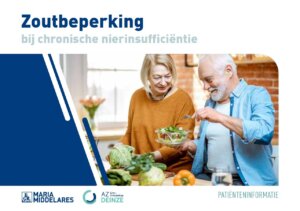
Facilities
Dieticians are experts in all sorts of health issues related to nutrition., such as diabetes, obesity and malnutrition. Children can also come to see us here.
Read on to find out what our dietitians offer.
For a surgery on the digestive tract, the surgeon decides where it is necessary to have follow-up with a dietitian. For example, when the digestive does not going well enough after the procedure, a dietitian is called in. In that case, tube feeding or parenteral feeding will be initiated. For certain procedures, the dietitian is consulted as a standard of care, such as for placement of a colostomy or ileostomy or for a Nissen operation. Dietary advice for a stoma can be found in the leaflets below.
For certain bladder operations, a consultation with a dietitian will be scheduled prior to the operation. There will be a screening for malnutrition, weight and body composition will be measured and you will be given tailored dietary recommendations. In preparation for surgery, patients are asked to follow a two-day low-residue diet. The dietitian will explain to you what a low-fibre diet is. You may also find information about this diet in the leaflet below.
Only available in Dutch:
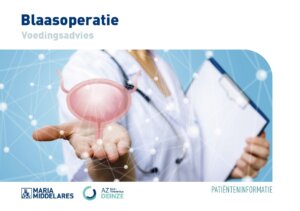
Voedingsadvies voor een blaasoperatie
DownloadIf you are considering a bariatric procedure, the surgeon will refer you to a psychologist and a dietitian. They will help you determine whether such a surgery is an appropriate solution for you.
During the first consultation with our dietitians, you will learn which steps are involved in undergoing a bariatric surgery.
- Before the surgery, you will adhere to a protein diet in order to reduce the risk of complications during the procedure. You will be given a daily routine that you will follow during the weeks prior to the surgery.
- After the surgery, you will gradually increase your diet in order to help your body adjust to the new situation. During your admission, the dietitian will come by your room to discuss the schedule for increasing your diet. You may refer to the diet schedule and nutritional advice in the leaflet below.
Only available in Dutch:
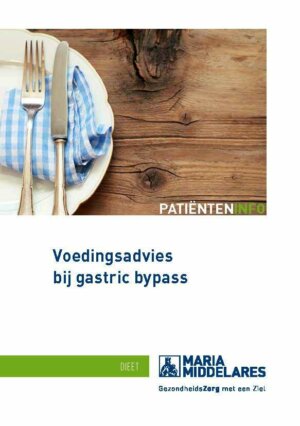
Voedingsadvies bij gastric bypass
DownloadFor additional follow-up, the dietitian will work together with your surgeon and psychologist. During the first year after the procedure, you may schedule up to five or six follow-up consultations with the dietitian. Afterwards, you will have follow-up once a year.
In addition to medication and movement, nutrition plays an important role in the treatment of diabetes. Our dietitians and diabetes educators tailor the dietary advice to your individual treatments for oral medication or insulin. Patients with gestational diabetes may also be receive multidisciplinary follow-up. The leaflet below provides nutritional advice for gestational diabetes.
Only available in Dutch:
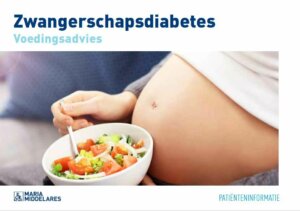
Zwangerschapsdiabetes
DownloadWhile hospitalised, the dietitian visits at the request of the endocrinologist e.g. in case of a new diagnosis, when your glycaemia levels are disordered or when you are in the diabetes agreement.
It is also possible to schedule a consultation with one of our dietitians. You must first receive a referral from a physician within our hospital. If you have a diabetes contract, you must come to us at least once a year for modified dietary advice.
Interested to find out a few tips? Please see the leaflet on type 2 diabetes,
Only available in Dutch:
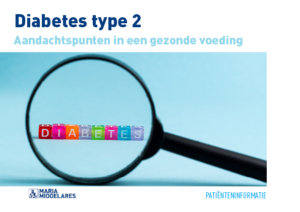
Diabetes type 2
Downloador visit our websitewww.sterkerdandiabetes.be where there are many educational videos.
A healthy diet is one of the important factors in preventing cardiovascular disease.
If you are admitted for heart problems or after you have had a heart operation, a dietitian will come visit you. After reviewing your eating pattern, the dietitian will work with you to see how your diet can be made more heart-friendly. Patients who participate in cardiac rehabilitation at our hospital also have the opportunity for follow-up consultations with a dietitian.
Are you interested in a heart-friendly diet? The leaflet below provides several tips.
Only available in Dutch:
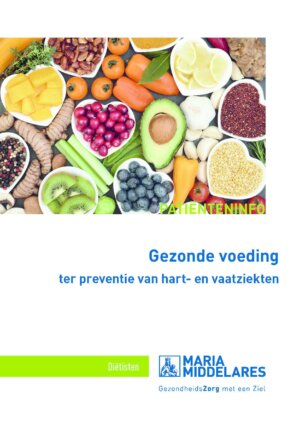
Gezonde voeding ter preventie van hart- en vaatziekten
DownloadDigestive tract symptoms are often limited or reduced when adjustments are made to the diet. Think of a lactose-free diet or lactose intolerance, the FODMAP diet or irritable bowel syndrome, etcetera. Specific symptoms, such as reflux, constipation, etcetera, can be supported by dietary adjustments. There are also specific recommendations for liver (e.g. NASH, cirrhosis) or pancreatic issues. After being referred by the physician, you can come in for a consultation. If you are admitted to the Gastric, Intestinal and Liver Diseases Department, the dietitian will come to your room to discuss malnutrition or specific problems, e.g. Crohn's disease episode, diverticulitis, etcetera. In the following leaflets, you will find more information about diets for diverticulitis, pancreatitis, liver cirrhosis, lactose intolerance and gluten-free diets for celiac disease. Discuss these recommendations with the dietitian, so that they can be tailored to your individual situation.
Only available in Dutch:
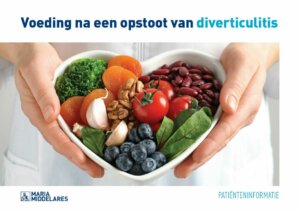
Voeding na een opstoot van diverticulitis
DownloadOnly available in Dutch:
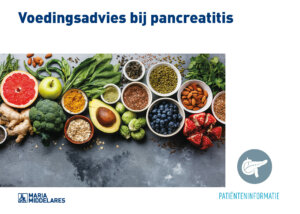
Voedingsadvies bij pancreatitis
DownloadOnly available in Dutch:
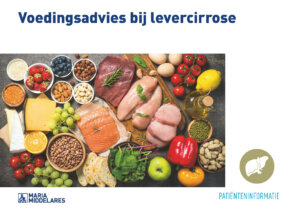
Voedingsadvies bij levercirrose
DownloadOnly available in Dutch:
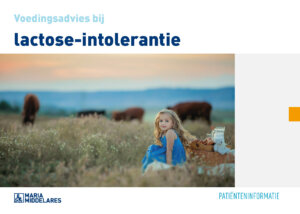
Voedingsadvies bij lactose-intolerantie
DownloadOnly available in Dutch:
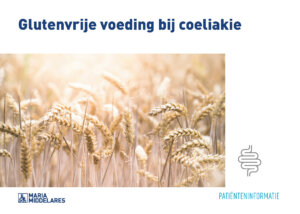
Glutenvrije voeding bij coeliakie
DownloadEvery patient who is admitted will be screened in the hospital for undernourishment or malnutrition. Malnutrition occurs when too little energy or nutrients such as protein are ingested for a prolonged period of time (e.g. due to a decreased appetite). This can also happen when enough is eaten, but there is an issue with the absorption of nutrients (e.g. Crohn's disease) or when there is increased use due to disease (e.g. with liver cirrhosis). Malnutrition can lead to a loss of muscle mass or of body weight.
We use the Nutritional Risk Screening (NRS 2002) to screen for undernourishment at the time of admission. We assign a score based on three criteria:
- Food intake over the past seven days.
- Weight loss
- Severity of disease.
When a risk for undernourishment is indicated, the dietitian will visit you in your room. After a conversation with you, they will determine whether this concerns a case of undernourishment. If necessary, you will receive individualised advice and treatment will be initiated. They work with the attending physicians and other disciplines at our hospital.
For undernourished patients, the goal is to increase the energy and protein intake in order to prevent muscle and weight loss. The exact treatment is different for everyone. The following options are possible:
- A modified diet is offered
- An energy and protein-rich diet is offered
- Medical nutritional shakes are started
- Tube feeding or parenteral feeding will be started.
Upon the request of the attending physician, a patient's energy use can be measured with an indirect calorimetry or BIA measurement. The diet can be fully tailored to the patient's needs, such as for a patient on a ventilator in the Intensive Care Unit.
See the leaflet below for more information.
The kidneys play an important role in the breakdown of nutrients, such as potassium, phosphorus and salt. Too much protein can also be stressful for people with kidney problems. On the other hand, proteins are important in the prevention of malnutrition. At dialysis, every patient will receive individualised dietary recommendations during treatment. if you are admitted to the Nephrology Department, the dietitian will visit you if the physician requests it. For outpatient consultations, you can be referred from the physician for a specific diet for kidney stones.
Only available in Dutch:
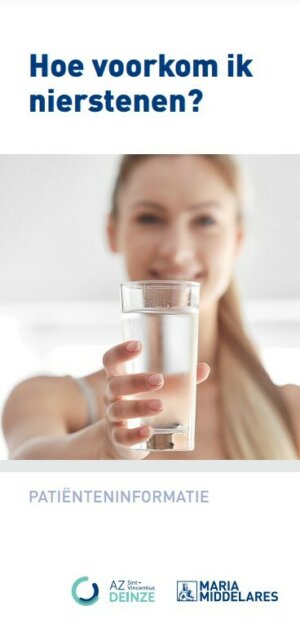
Hoe voorkom ik nierstenen?
DownloadSee the leaflets below for more information:
Oncological conditions and their treatment take a lot out of the body. These demands sometimes lead to nutritional issues, such as unwanted weight loss, reduced appetite and changes in the ability to taste.
The dietitian team helps patients through the trajectory and provides tips in order to reduce patients’ symptoms. The dietitians can also visit you if you are admitted to the hospital or if you are at the Oncology Day Hospital. If you have questions concerning nutrition, you can then ask those at any time. You may also contact the oncology dietitians on your own by sending an e-mail to oncodietisten@mijnziekenhuis.be.
Furthermore, we provide a periodical information session on nutrition and cancer as part of the rehabilitation programme ‘Revivo’.
People who are overweight or obese can also have four consultations with our dietitians.Together, they work with you to established a balanced diet and give tips tailored to what you need. Once these four consultations are scheduled, you will be referred to a first-line dietitian.
During a consultation, you will receive explanations on what constitutes a healthy, complete diet. You will learn what an ideal portion size is, and you will receive several tips about products and recipes. The Food Pyramid from Healthy Living forms the basis for this information.
Your weight and body composition will be measured at every consultation. We strive to lower the fat mass and to increase muscle mass. Your dietitian will then discuss the results with you.
Do you need more support? In that case, you can schedule a consultation with the rehabilitation physician in'Fitness'. 'Fitness' is a programme where you intensively work on your health and weight. The programme focuses on diet and movement. The Fitness Team consists of a physician, psychologist, movement expert and a dietitian. Together, they strive to provide you with optimal support. Four consultations with a dietitian are part of this programme. There are also two group sessions where you will receive tips on healthy eating and how to shop for healthy food in the supermarket.
Learn early for long-lasting benefits. Every child benefits from healthy lifestyle habits, such as a varied diet, enough movement and limiting sedentary routines and screen time. Are you coming to a consultation with your child? Together, we will look for a solution without your child feeling different than other children. We do that by first taking a detailed history so that we can provide detailed advice.
The goals we strive to achieve vary greatly. For children who are overweight or obese, we strive to maintain the BMI. We discuss what is going well, which portion sizes are appropriate and which products we choose (e.g. cookies, snacks, etcetera.) We also help picky eaters learn how to sample foods, so that they can achieve a more varied diet. For children with a growth delay, we focus primarily on energy and protein intake. Does your child have an allergy? At the Paediatric Allergy Centre, you will find experts in allergies and intolerances.
We work in consultation with the Speech Therapy Department to provide follow-up for patients with swallowing problems. Swallowing problems can develop after oncological conditions, neurological episodes (CVA), age, oesophageal problems, etcetera. A modified diet is provided, and the energy and protein intake is calculated and addressed, where necessary.
Every year the Neurology Department organises two educational sessions on 'Parkinson's' and 'Living after a stroke'. An educational session consists of various components, one of which addresses diet.
You can go to the Sports Medicine Centre for multidisciplinary support with sports. You will receive individualised dietary recommendations, among other things.
The rates for a dietary consultation on 21 June 2024 are as follows:
- 60 minutes: 65.00 €
- 45 minutes: €47.00
- 30 minutes: €30.00
These prices may vary. Get in touch for more info.
Something wrong or unclear on this page? Report it.







